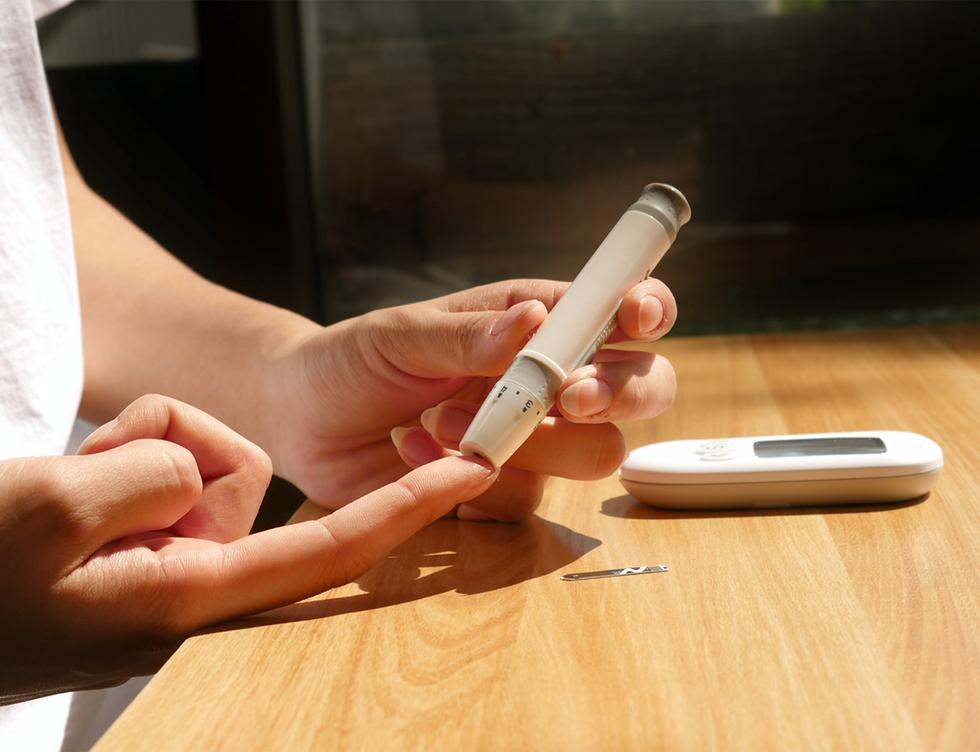What is type 1 diabetes?
Diabetes type 1 is a chronic autoimmune disease that affects millions of people around the world. It usually begins during childhood or adolescence, but adults can also be affected. About 10% of all patients with diabetes have type 1 diabetes, making it the most common autoimmune form of diabetes. At least 1% of all children born in Sweden are affected by type 1 diabetes at some point in their lives.
What happens in the body in type 1 diabetes?
The body's immune system attacks and destroys the cells that produce insulin in the pancreas. The consequence of this is a lack of insulin, without enough insulin the body cannot regulate blood sugar levels, which leads to high blood sugar values.
Why do you get type 1 diabetes?
The causes of type 1 diabetes are not yet fully understood, but research has shown that they involve both environmental and genetic factors. It is important for continued research to better understand the origin of the disease and to develop methods for both prevention and treatment. This is what the research has concluded:
- There is a hereditary component to type 1 diabetes. People with a family history of the disease have an increased risk of developing it. Certain genes, especially those that are part of the HLA (histocompatibility complex) system, play a role in the hereditary component of the disease.
- Type 1 diabetes is an autoimmune disease, which means that the body's own immune system attacks and destroys the insulin-producing cells in the pancreas. The cause of the autoimmune reaction is not fully understood.
- Environmental factors, particularly viral infections, have been suggested as triggers that can initiate the autoimmune response in genetically predisposed individuals.
- The presence of antibodies against certain substances normally found in the insulin-producing cells (for example insulin, GAD and IA-2) can be an indicator of an increased risk of developing type 1 diabetes.
- Increasing incidence and early onset: Type 1 diabetes appears to be increasing in prevalence and onset at younger and younger ages, although the reasons for this trend are not fully understood.
Diabetes type 1 – symptoms
Symptoms can vary from person to person, here are some of the most common:
- increased thirst - and increased urination
- a feeling of being constantly hungry
- unintentional weight loss
- weakness and fatigue
- blurred vision
- itching and dry skin.
If you experience symptoms and are worried about diabetes type 1, it is good to seek help and to take blood tests that measure your blood sugar levels.
Testing for diabetes type 1
Common blood tests for investigation of, and control of, diabetes are Hba1c, glucose and C-peptide , these are also analyzed in a larger health check that can help identify diabetes, Health Check - Diabetes, at an early stage.
Treatment of type 1 diabetes
Type 1 diabetes cannot be cured, but with the right treatment and healthcare routines, people with type 1 diabetes can live healthy and productive lives. The treatment of type 1 diabetes includes:Insulin treatment
People with type 1 diabetes need daily insulin injections to replace the lack of insulin in the body. There are different types of insulin that can be used, and the dosage and administration can vary depending on the individual's needs.
Blood sugar control
An important part of the treatment of type 1 diabetes is to regularly monitor blood sugar levels. This can be done by using a blood glucose meter and following an individual treatment plan that includes diet, exercise and medication.
Life as a type 1 diabetic
Living with type 1 diabetes can be difficult at first, but eventually it becomes part of everyday life. It requires careful planning around insulin treatment and monitoring of blood sugar levels. Continuous glucose measurement, via blood glucose test, needs to be done for those type 1 diabetics who do not have access to a CGM that continuously measures the glucose level.
It is important to get the right support from a diabetes team that has specialist knowledge of the disease and can provide support, advice and help with treatment. While it can be good to meet and have fellowship with others who also have type 1 diabetes to share thoughts and experiences with.






















